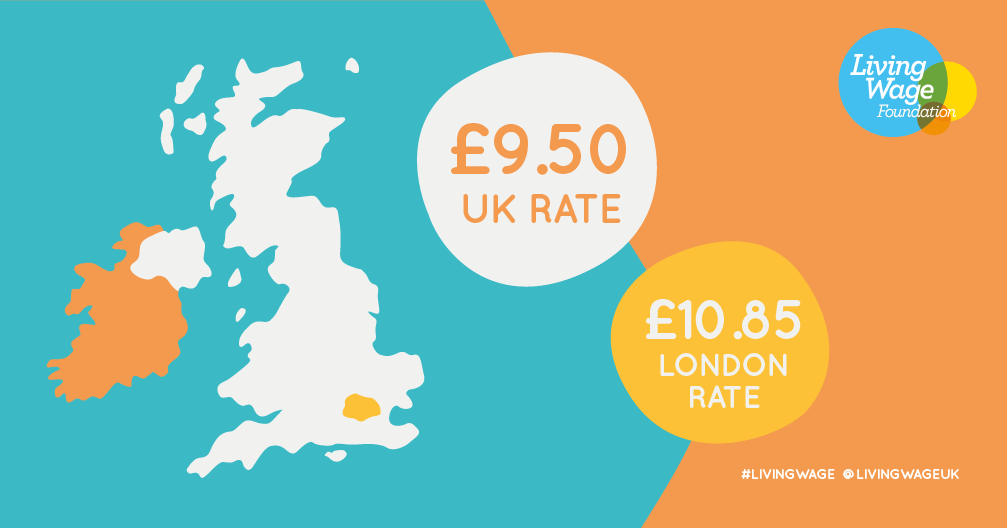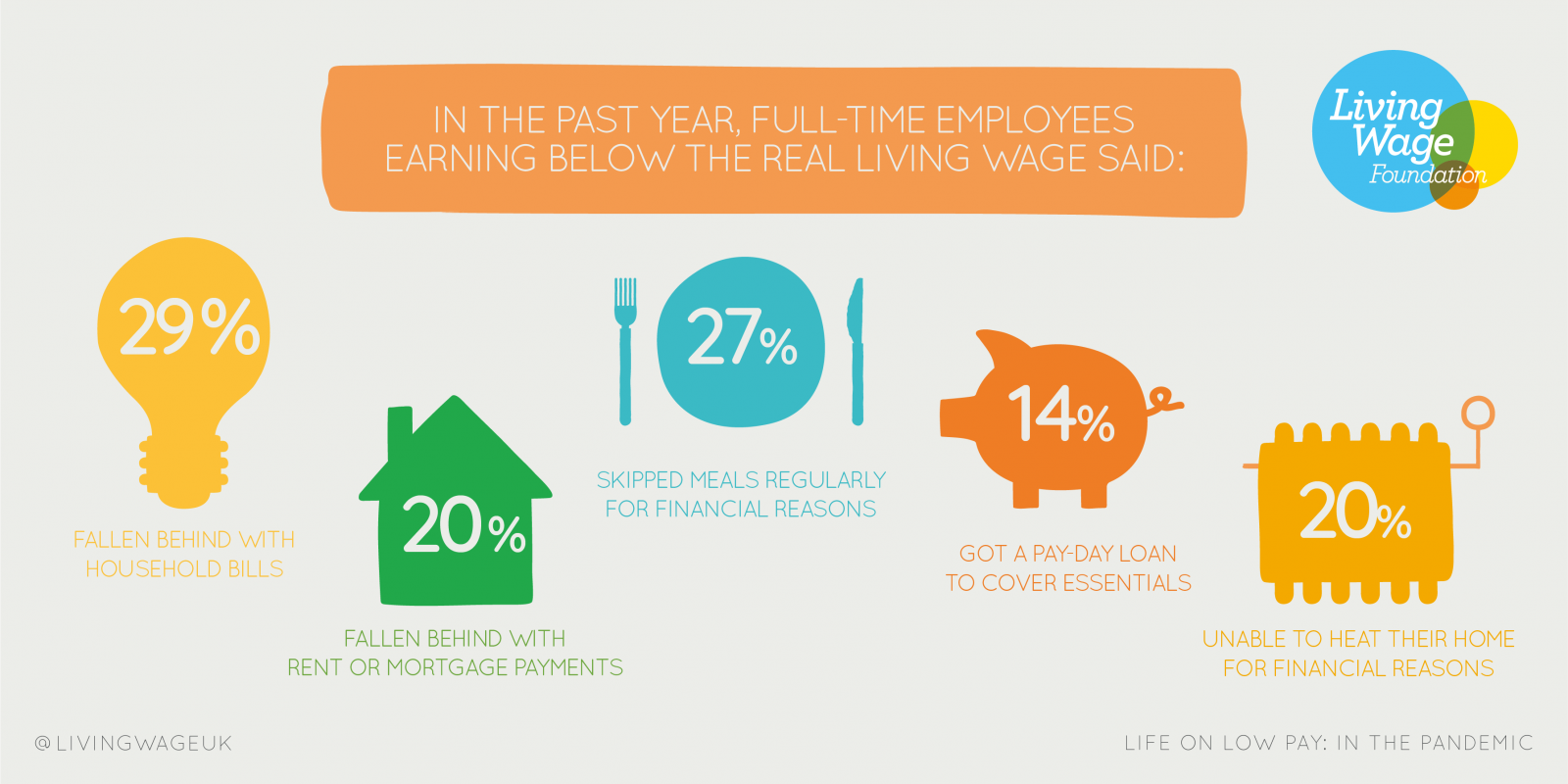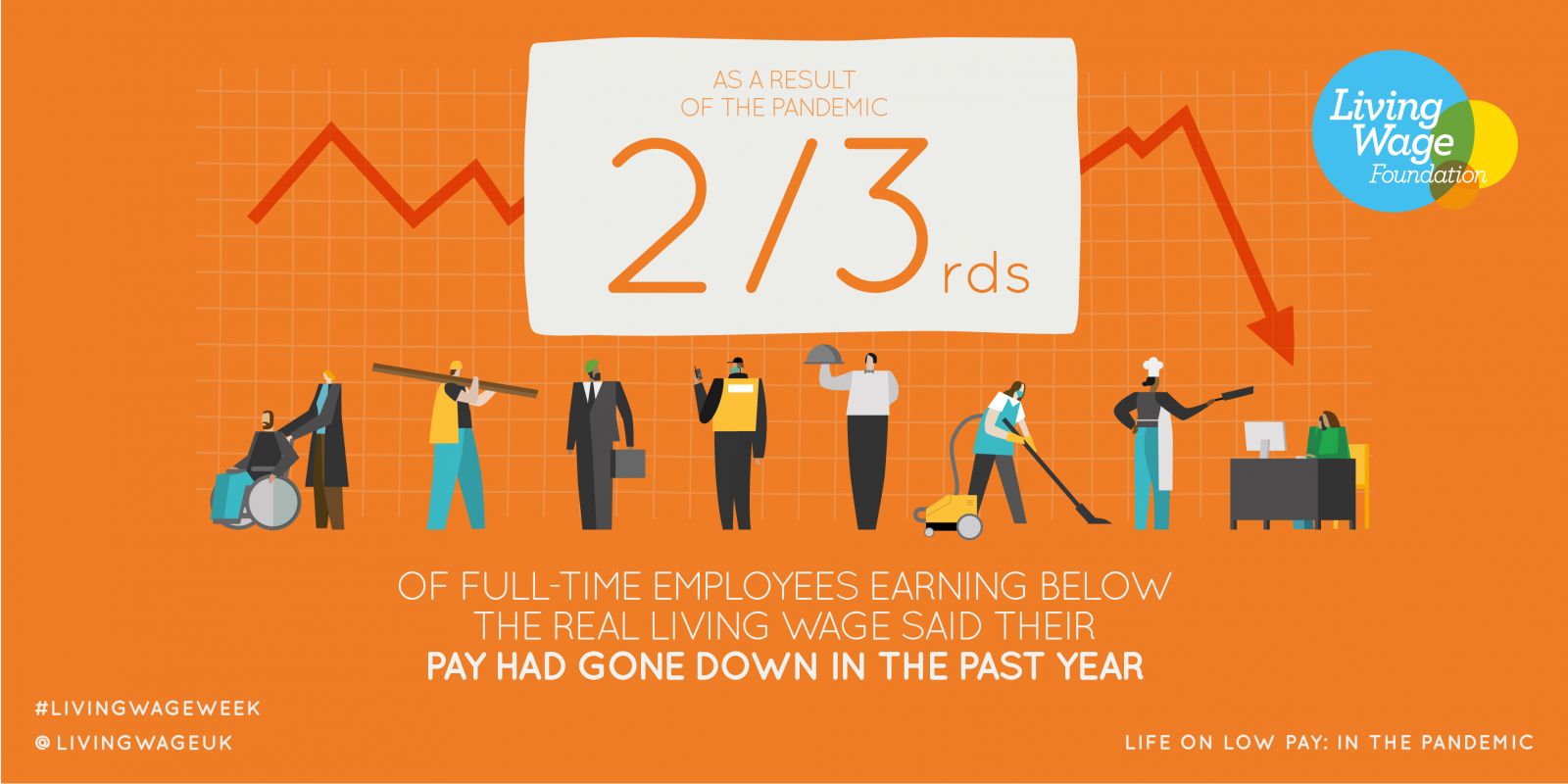
Analysis by LWF of 2021’s Labour Force Survey and Family Resource Survey showed that around 3.7 million people - 12% of the workforce - are in insecure forms of work and earn less than the real Living Wage of £9.50 per hour (or £10.85 in London). Defined as those who are underemployed, report volatile pay or hours, are in non-permanent work (where this isn’t their choice), or are in low-paid self-employment – the report’s troubling findings showed the extent of the country’s ongoing wage crisis.

While many of the problems associated with low pay and work insecurity are obvious, like people’s inability to meet their basic needs, there are also several secondary effects to such widespread uncertainty around hours and pay. The LWF report showed that almost 40% of all workers receive less than a week notice about shift changes and cancellations, affecting people’s ability to budget effectively from one week to the next, and making it more difficult to plan for the future.
What’s more, 2 million insecure workers are parents, and childcare costs can often amount to a significant expenditure for working parents of young children. When shifts are changed or dropped at the last minute, many parents can find themselves out of pocket for childcare, whilst also losing income from missed work. Women are also more likely to be in forms of insecure work - with 7.1% of women in this type of insecure work compared to 6% of men.
In the last year, those working in frontline professions like healthcare, logistics, sanitation, agriculture, and fisheries were among the most likely to be in low paid and insecure work. In fact, during the pandemic, 52% of people in insecure work were key workers!
A move away from this kind of low-paid, insecure work, especially in vital sectors, benefits employers as much as it does employees – and with many businesses struggling to fill roles, such a move could be essential in reducing labour-market volatility.

An inability to plan one’s hours and working long shifts for barely enough pay to cover basic living costs can often lead to feelings of powerlessness, anxiety, and depression, which ends up costing businesses much more in the long run, due to missed days and overall lower productivity. Plus, as more companies move towards improving employees’ pay and conditions, led by organisations such as the LWF, The Good Business Charter (GBC) and the Trades Union Council (TUC), those who fail to respond to these changes may find themselves left behind, both by their competitors and their own staff!
As the pandemic and Brexit have put a strain on Britain’s labour market, many workers have more choice than ever in where, how much, and how they work, meaning they are more likely than ever to simply walk away from jobs that do not afford them a reasonable quality of life. According to a recent report by the BBC, around 38% of respondents to a survey on work indicated they were planning to quit their current role within 12 months. In the same research, 45% of those looking for a change cite either worsening work-life balance or a pay cut/freeze as their main reason for leaving.

It’s not all doom and gloom though; by working with employees to mitigate the harmful effects of insecure and low-paid work, managers have an opportunity to drastically improve their company culture and attract the best talent to their teams.
While research like this can often seem disheartening, it also represents an opportunity for the UK’s business leaders to make real, meaningful changes to their employees’ lives. Implementing these changes will boost job satisfaction, welfare, and productivity, and give employers an advantage in the shifting labour market. Ultimately, businesses who respond quickly and effectively to these changing demands will be the ones to lead the UK’s economic recovery.
Back